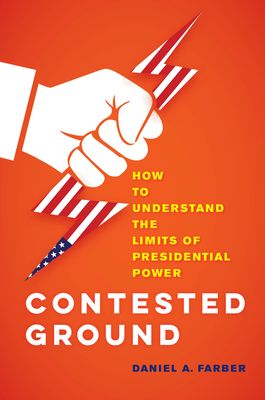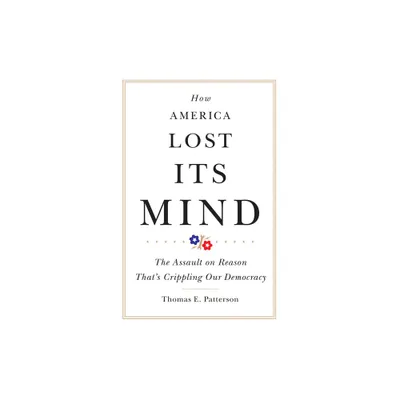Home
The Illusion of Presidential Power: How America's Focus on Leadership is undermining its Empire
Loading Inventory...
Barnes and Noble
The Illusion of Presidential Power: How America's Focus on Leadership is undermining its Empire
Current price: $26.99


Barnes and Noble
The Illusion of Presidential Power: How America's Focus on Leadership is undermining its Empire
Current price: $26.99
Loading Inventory...
Size: Hardcover
*Product Information may vary - to confirm product availability, pricing, and additional information please contact Barnes and Noble
What began as a republic built on the balance of powers has morphed into a stage for spectacle, where policy substance is sidelined in favor of personality, and long-term vision is sacrificed for short-term applause. Presidential tweets replace diplomacy, charisma overshadows competence, and celebrity status trumps statesmanship. This shift, from leadership to showmanship, has not just reshaped American politics; it's weakening the very foundations of America's global influence, turning a once steady empire into a series of fleeting performances.
This transformation didn't happen overnight. It is the product of decades of increasingly media-driven politics, where each administration builds upon the theatrics of the last. Presidents have become more than mere officeholders; they are the protagonists in a 24-hour news cycle, their every move, speech, and misstep dissected and amplified.
The American people are no longer just citizens, they are an audience, and the world watches on as this spectacle unfolds.
The emphasis on personality and performance has led to a system where image takes precedence over impact, and where policy decisions are made not for their strategic value, but for their optics. As allies struggle to predict America's next move and adversaries exploit the chaos, the nation's ability to project a stable and coherent global presence wanes, undermining the empire from within.
In 1787, when the delegates of the Constitutional Convention convened in Philadelphia, they embarked on a task both monumental and delicate: creating a system of government that would stand in stark contrast to the monarchies of Europe. They sought to establish a republic, a state where power would not be vested in the hands of a king or emperor but distributed among branches of government and ultimately, in the hands of the people. The presidency, as it was conceived, was meant to be, can you believe, a
modest office
, one of balance, not of dominance. It would be a position of responsibility, not a pedestal of unchecked power.
Today, more than two centuries later, the vision of the Founders seems both prophetic and distant. The United States, once a symbol of democratic restraint and balance, finds itself gripped by a paradox: its identity and global power have become increasingly tethered to the office of the president, an office that now resembles the very kind of centralized authority its creators feared.
But it's not just about who occupies the office; it's about how the office is perceived, used, and misused. The American public, and indeed the world, has been drawn into this performance, so much so that the image of the president has overshadowed the office's original intent. We have moved from the symbolic power of Roosevelt's fireside reassurance to the volatile tweets of modern leaders. The focus has shifted from the structure of governance to the personality of the one governing.
Herein lies the illusion of power.
This transformation didn't happen overnight. It is the product of decades of increasingly media-driven politics, where each administration builds upon the theatrics of the last. Presidents have become more than mere officeholders; they are the protagonists in a 24-hour news cycle, their every move, speech, and misstep dissected and amplified.
The American people are no longer just citizens, they are an audience, and the world watches on as this spectacle unfolds.
The emphasis on personality and performance has led to a system where image takes precedence over impact, and where policy decisions are made not for their strategic value, but for their optics. As allies struggle to predict America's next move and adversaries exploit the chaos, the nation's ability to project a stable and coherent global presence wanes, undermining the empire from within.
In 1787, when the delegates of the Constitutional Convention convened in Philadelphia, they embarked on a task both monumental and delicate: creating a system of government that would stand in stark contrast to the monarchies of Europe. They sought to establish a republic, a state where power would not be vested in the hands of a king or emperor but distributed among branches of government and ultimately, in the hands of the people. The presidency, as it was conceived, was meant to be, can you believe, a
modest office
, one of balance, not of dominance. It would be a position of responsibility, not a pedestal of unchecked power.
Today, more than two centuries later, the vision of the Founders seems both prophetic and distant. The United States, once a symbol of democratic restraint and balance, finds itself gripped by a paradox: its identity and global power have become increasingly tethered to the office of the president, an office that now resembles the very kind of centralized authority its creators feared.
But it's not just about who occupies the office; it's about how the office is perceived, used, and misused. The American public, and indeed the world, has been drawn into this performance, so much so that the image of the president has overshadowed the office's original intent. We have moved from the symbolic power of Roosevelt's fireside reassurance to the volatile tweets of modern leaders. The focus has shifted from the structure of governance to the personality of the one governing.
Herein lies the illusion of power.


















